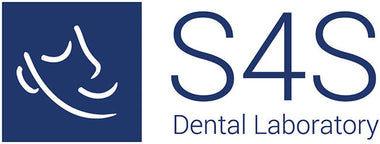CAN A TOOTHACHE GIVE YOU A HEADACHE?
If you’ve ever had a throbbing headache at the same time as a toothache, you might have wondered if the two are connected.
While they may seem unrelated, dental pain and headaches can often coincide.
Certain dental issues, such as infections, teeth grinding, and jaw joint problems, can put extra strain on the surrounding muscles and nerves, increasing the likelihood of headaches.
Understanding this connection can help you identify whether your headaches could be linked to an underlying dental concern—and whether a visit to the dentist might offer relief.
How can a toothache and headache be connected?
The mouth and jaw are closely connected to the muscles and nerves in the head, so when something goes wrong in the oral cavity, it can cause discomfort elsewhere.
Common dental issues that can cause headaches:
• Tooth infections and decay
• Bruxism (teeth grinding and clenching)
• TMJ disorders
• Impacted wisdom teeth
• Poor bite alignment
Tooth infections and decay
Untreated cavities or infections can spread from the tooth to surrounding tissues, such as the gums or jawbone, causing discomfort that radiates to the head.
The infection may trigger throbbing pain and increase pressure in the area, leading to headache-like symptoms.
It's essential to address cavities early to prevent them from causing more significant problems, including pain that extends beyond the tooth itself.
Bruxism (teeth grinding and clenching)
Grinding or clenching your teeth, especially during sleep, can place constant pressure on the jaw and the muscles surrounding it.
This ongoing strain can result in tension headaches that feel like they’re coming from the temples or behind the eyes.
If left untreated, bruxism can also lead to temporomandibular joint (TMJ) disorders.
TMJ disorders
The temporomandibular joint (TMJ) connects your jawbone to your skull and helps facilitate movement.
When this joint is misaligned or damaged, it can lead to pain and discomfort in the jaw, temples, and head, often mimicking the symptoms of a migraine.
TMJ disorders can be caused by factors such as jaw injuries, arthritis, or teeth grinding.
Impacted wisdom teeth
When wisdom teeth don’t fully erupt or become impacted, they can create pressure in the mouth and jaw.
This can lead to discomfort that radiates through the head, often resulting in headaches.
Wisdom teeth that are partially erupted or trapped under the gum line can also cause swelling and infection, which can exacerbate the pain.
Poor bite alignment
An improperly aligned bite can put uneven pressure on the jaw and surrounding muscles, causing tension that may result in chronic headaches.
Misalignment can affect how your teeth meet, contributing to stress and discomfort in the head and neck area.

H![]() ow can you stop a toothache from giving you a headache?
ow can you stop a toothache from giving you a headache?
If you suspect that your headaches may be connected to a dental issue, it’s important to visit your dentist for a proper assessment. Here’s what can be done for each of the potential underlying concerns.
Tooth infections and cavities
For tooth infections or cavities, early intervention with fillings or root canal therapy can help prevent the infection from spreading and causing additional discomfort.
Bruxism (teeth grinding and clenching)
An occlusal splint (also known as a dental guard) is often recommended by dentists to help alleviate symptoms associated with bruxism, including headaches. The Sleep Clench Inhibitor (SCi) is a standout option. It’s designed specifically to protect your teeth and reduce the muscle tension that can lead to headaches.
TMJ disorders
For TMJ disorders, a range of treatments, from splints such as the SCi to physical therapy, can help alleviate the strain on your jaw and relieve headache symptoms.
Impacted wisdom teeth
For those with impacted wisdom teeth, your dentist may suggest removal to prevent the buildup of pressure and reduce the risk of further complications, including headaches.
Poor bite alignment
If poor bite alignment is contributing to your discomfort, orthodontic treatment, such as Smilelign clear aligners, can gradually correct the issue, offering relief from headaches caused by uneven jaw pressure.

The importance of regular dental check-ups
Understanding the connection between dental discomfort and headaches is key to finding lasting relief.
Regular dental check-ups are essential in maintaining both your oral health and head health, ensuring that any issues are caught before they become more severe.
If you're experiencing headaches alongside dental pain, consulting your dentist could be the first step toward a pain-free future.

